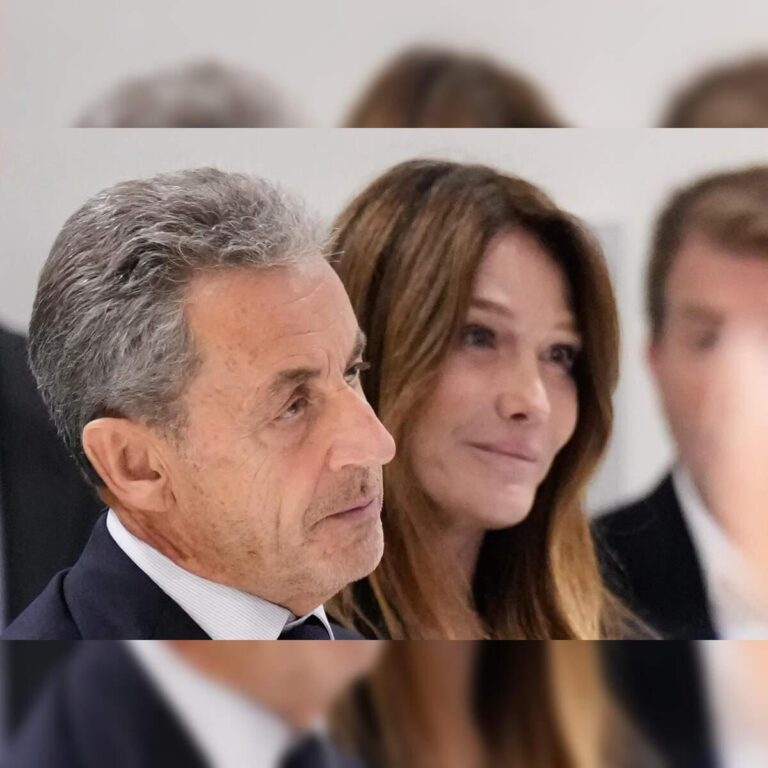Former French President Nicolas Sarkozy, a figure whose political influence shaped the landscape of France for over a decade, has witnessed a dramatic fall from grace as legal challenges intensify. Once a charismatic leader who steered the country through economic turmoil and spearheaded ambitious reforms, Sarkozy’s legacy is now overshadowed by multiple legal battles and convictions. As he navigates the complexities of justice, the question remains: How did a man who once commanded the French political stage become ensnared in controversy? In this article, we explore Sarkozy’s enduring impact on French politics and the circumstances that led to his current predicament, reflecting on a career marked by both triumph and turmoil.
Ex-President Nicolas Sarkozy’s Enduring Influence on French Political Landscape
The political journey of Nicolas Sarkozy has left an indelible mark on France, influencing parties and policies long after his presidency ended in 2012. His charismatic approach and controversial decisions reshaped the landscape, making him an enduring figure in both conservative and centrist circles. Key elements of Sarkozy’s influence include:
- Right-Wing Unity: He successfully united various factions within the right, reinforcing traditional values while embracing new ideas.
- Economic Reforms: His policies often debated over their effectiveness continue to be referenced in current economic discussions.
- Global Diplomacy: Sarkozy’s role in international issues, particularly regarding the EU and NATO, still resonates among today’s leaders.
Despite facing legal challenges that could overshadow his political legacy, Sarkozy has remained a fixture in political commentary and strategy. His advocacy for rightist ideologies reflects a broader trend, with many former allies and contemporaries adopting similar stances, which underscores his lasting impact. As the political climate shifts, the implications of Sarkozy’s strategies manifest in several ways:
| Strategy | Current Implications |
|---|---|
| Populist Rhetoric | Resonates with emerging right-wing movements. |
| Immigration Policies | Continues to fuel national debate and influence policy direction. |
| Economic Deregulation | Shapes modern economic strategies among centrist parties. |
The Legal Challenges Faced by Sarkozy and Their Implications for French Governance
The legal troubles surrounding Nicolas Sarkozy have not only marked a tumultuous chapter in his life but have also cast a long shadow over the French political landscape. The former president, once a charismatic leader, has found himself ensnared in a series of judicial proceedings that have raised crucial questions about accountability at the highest levels of governance. Key legal battles, including allegations of corruption and illegal campaign financing, have culminated in significant convictions, which challenge the public’s perception of political integrity. As these cases unfurl, they reveal an intricate web of political maneuvering that blurs the lines between power and ethics.
Moreover, Sarkozy’s legal challenges signal a potential shift in the governance paradigm within France. With the legal system increasingly scrutinizing high-profile figures, there is a growing expectation for transparency and ethical conduct in public office. This shift could lead to more rigorous checks and balances within the political framework, fostering a culture where leaders are held to higher standards. The implications extend beyond Sarkozy, as they may encourage other politicians to reassess their conduct and engagement with the law, altering the dynamics of political power in France for the foreseeable future.
Political Strategies That Sustained Sarkozy’s Relevance Amidst Controversy
Nicolas Sarkozy navigated through tumultuous political waters by employing a series of adept strategies that kept him at the forefront of French politics, even in the face of numerous controversies. His ability to redefine his public image played a pivotal role. By positioning himself as a pragmatic centrist, Sarkozy attracted a diverse voter base that extended beyond traditional party lines. This strategic alignment allowed him to implement policies that resonated with various segments of the electorate, including:
- Economic Reforms: Pro-business initiatives that appealed to the bourgeoisie and entrepreneurial classes.
- Public Security: A hardline stance on crime that garnered support from conservatives.
- Immigration Policy: Advocating for tighter immigration control that resonated with nationalist sentiments.
Moreover, Sarkozy managed to maintain his relevance by fostering alliances both within and outside his party. He cultivated a network of influential supporters, which helped bolster his political capital. His participation in key European forums allowed him to position France as a significant player on the international stage, offering a sense of stability amid internal chaos. Despite legal challenges, he effectively employed a narrative of judicial bias to shield his public image. The following table summarizes Sarkozy’s pivotal strategies against the backdrop of controversy:
| Strategy | Description |
|---|---|
| Image Reinvention | Shifted from a controversial leader to a pragmatic centrist. |
| Alliance Building | Forged connections with influential political figures. |
| Narrative Control | Framed legal issues as politically motivated attacks. |
Lessons for Future Leaders: Navigating Power and Accountability in Democracy
The saga of Nicolas Sarkozy shines a spotlight on the precarious balance between power and accountability. Leaders in democratic systems must recognize that their authority comes with an obligation to uphold integrity and transparency. Sarkozy’s legacy illustrates the consequences of neglecting these principles, highlighting the importance of fostering a political culture that prioritizes ethical conduct. Future leaders must establish clear frameworks for accountability, ensuring that their decisions and actions remain scrutinized and aligned with public interest.
A proactive approach to governance is vital in mitigating the risks of corruption and abuse of power. As seen in Sarkozy’s political career, maintaining a transparent dialogue with citizens is crucial for building trust and sustaining democratic engagement. Future leaders can consider these key strategies for fostering accountability:
- Promote Transparency: Regularly disclose information regarding decision-making processes.
- Encourage Civic Engagement: Facilitate channels for public feedback and participation.
- Implement Robust Oversight: Enforce strict checks and balances to deter misconduct.
| Key Elements | Description |
|---|---|
| Integrity | Commitment to ethical standards and honesty. |
| Responsibility | Accountable for decisions affecting the public. |
| Engagement | Involving citizens in policymaking processes. |
In Summary
In conclusion, the political trajectory of Nicolas Sarkozy exemplifies the complexities of French politics in the 21st century. From his ascension to the presidency to his enduring influence in the political landscape, Sarkozy’s journey underscores the intertwining of power, legacy, and accountability. As legal proceedings continue to unfold, they serve as a reminder of the broader implications of justice in political realms. Moving forward, the future of Sarkozy’s influence remains uncertain, yet his impact on the shaping of modern France is undeniably significant. As the nation watches closely, the legacy of Sarkozy will likely continue to spark debate and reflection on the nature of leadership and the rule of law in France.




